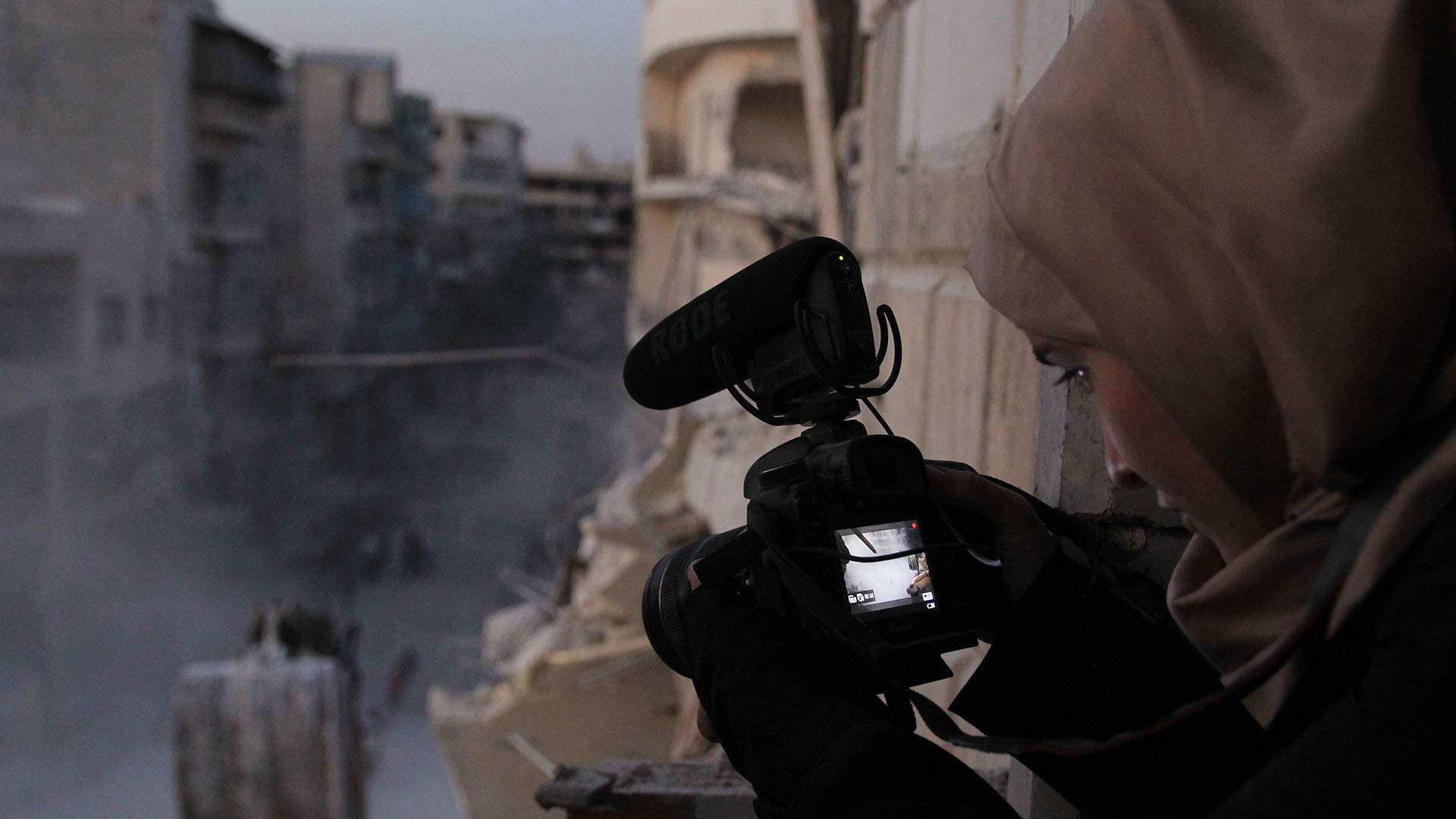For Sama
Shot on the ground in Aleppo over five years, this award-winning documentary offers a heartbreaking personal perspective on the ongoing Syrian Civil War.
Overview
The opening moments of For Sama aren't easily forgotten. As journalist Waad Al-Kateab sings to infant Sama in their Aleppo home — a room in the city's only remaining volunteer hospital — in 2016, the sound of tank shells puncture her soothing tones. With her doctor husband Hamza, Waad and her daughter soon start to flee. As they rush hurriedly downstairs, a flash appears at the end of the hallway, filling the corridor with smoke. The trio make it to safety, huddling with others in the same situation. To keep Sama distracted as they wait out the attack, they play a game of peek-a-boo with the baby using their air-filtration face masks.
Shot by Waad herself — For Sama's narrator, producer, cinematographer, co-director with Edward Watts and one of its subjects — this sequence kicks off this Oscar-nominated, Cannes-awarded, BAFTA-winning documentary as it means to go on. That said, in a film that doesn't shy away from the blood spilled, lives lost and bodies piled up during the ongoing Syrian Civil War, this introductory scene actually provides some of the movie's least confronting sights. Given how tough, fraught and tense the feature's first moments are, that speaks volumes about everything that follows. But difficult images and emotions are to be expected when peering into the lives of ordinary Syrians caught up in the country's seemingly ceaseless conflict, especially when detailed in such an intimate fashion.
As the film's simple, personal and expressive title suggests, Waad has fashioned her documentary as a visual letter to her firstborn. A chronicle of Sama's time in the crumbling Aleppo, it's also an explanation, a time capsule and a portrait of a place that the Al-Kateabs passionately fought for. Using footage recorded since 2012 — when the Arab Spring initially sparked protests in Syria — Waad captures the war from her own viewpoint. Her skills as an activist and journalist are essential, but her role as a mother and the fact that she's a passionate, empathetic person prove even more important. Waad doesn't capture soldiers in battle, bombs being fired or buildings turning to ruins, instead focusing on her own efforts to simultaneously fight for her home, maintain a life and help many others in need. Piecing it all together via a poignant video diary, she also depicts the many others trying to do the same, as well as the casualties and consequences.
Accordingly, this is a doco where children arrive at the hospital covered in blood, muck and dust from artillery fire, then leave crying as their siblings join the growing body count. It's a film where mothers scream with pain and fury, inconsolable about their losses but adamant that everything must be recorded in order to show the world what's happening. And, it's a movie where Waad is committed to battling for freedom however she can — by documenting the war, assisting at the hospital and, crucially, by refusing to run away — but still agonises over the choice to bring Sama into the world. Every second is heartwrenching. Every moment is devastating. Every frame stares into the on-the-ground nightmare, as relayed by someone experiencing it as it happens.
While the conflict in Syria has understandably become a frequent cinematic topic — For Sama is just one of two films on the subject that were nominated for this year's Academy Award for Best Documentary — Waad's personal approach makes an enormously powerful impact. We watch as she evolves from economics student to married filmmaker and mother. We hear her thoughts, prayers and regrets. We feel her initial hope that Bashar al-Assad's Russian-backed dictatorship will come to an end, her fear when the shells and bombs keep raining down, and her seemingly impossible quest to balance her love of her country with her love for her fledgling family. And, we also watch as she records intimate, life-changing events around her, giving them the benefit of her eyewitness insight. In the latter category, footage of doctors working on a baby born via emergency caesarian ranks among the movie's many inclusions that audiences will want to both stare deeply at and instantly look away from.
Jerky and jittery both emotionally and visually, there are no easy images here — even when Waad's handheld cinematography simply gazes at Sama's smiling face. There are no easy answers either, even though the utter horror of targeting civilians like Waad and her compatriots in war is never in doubt. A dedicated, distraught and despairing act of bearing witness, For Sama channels all of its energy into presenting a vital perspective — and one that's so routinely overlooked in tales of conflict. War is waged not just on nations, leaders and soldiers, but on ordinary people, mothers, children and babies, as this shattering film never lets slip out of view.





